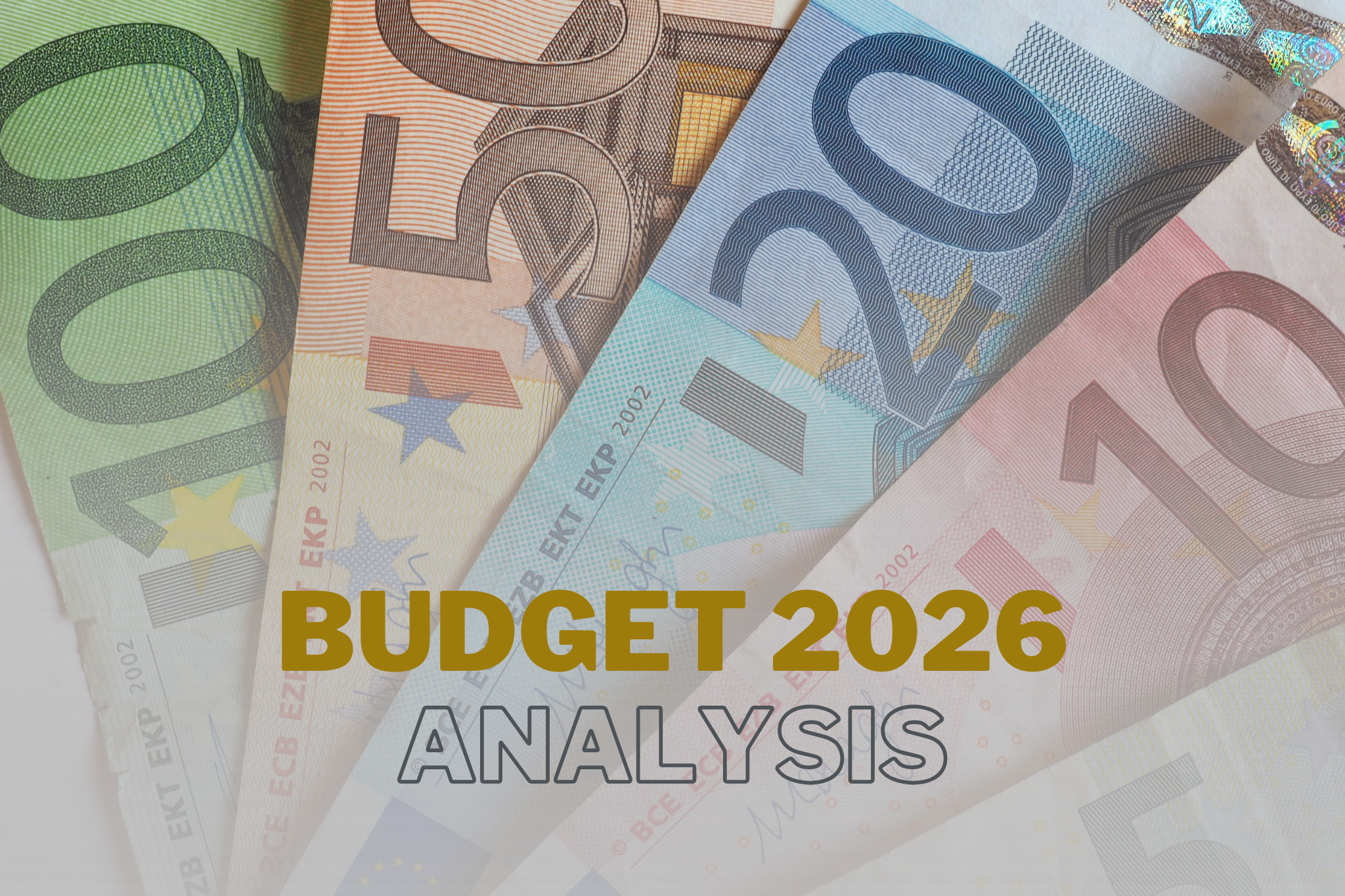
Budget 2026 was delivered by Minister Paschal Donohoe with a clear commitment of investing in the future to safeguard Ireland’s economic stability. For business leaders, the message is one of prudent optimism: the government is balancing fiscal discipline with targeted supports to help enterprises navigate global volatility and seize new opportunities.
Economic Resilience and Fiscal Prudence
Minister Donohoe’s speech underscored Ireland’s robust economic fundamentals – record employment, robust growth in domestic demand, and a healthy public finance position.
Budget surpluses are being used to reduce public debt and build up the Future Ireland Fund and the Infrastructure, Climate and Nature Fund, projected to reach €24 billion by the end of next year. This approach is intended to shield the economy from external shocks and provide a buffer for future demographic and structural challenges.
Housing and Infrastructure: Unlocking Growth
For those looking to buy a home, the government’s focus on housing and infrastructure is particularly significant. Over €5 billion in capital investment is earmarked for housing delivery in 2026, with reforms to planning and design aimed at boosting supply and affordability. Key measures include:
- VAT reduction on apartment sales (from 13.5% to 9%) to stimulate construction and address viability gaps.
- New Derelict Property Tax and extension of the Residential Development Stamp Duty Refund Scheme to incentivise regeneration and development.
- Additional funding for Home Building Finance Ireland, including €200 million for SME builders.
These initiatives are designed to ease housing pressures, support workforce mobility, and enhance Ireland’s attractiveness as a location for investment.
Taxation and Business Supports
Budget 2026 introduces several measures to support enterprise competitiveness and innovation:
- Reduced VAT for hospitality and hairdressing to 9% effective July 2026, supporting over 150,000 jobs.
- Enhanced R&D tax credit, increased to 35%, and improvements to the Key Employee Engagement Programme (KEEP) to help SMEs attract and retain talent.
- Revised Entrepreneur Relief, raising the lifetime gains limit from €1 million to €1.5 million, and a new stamp duty exemption for SMEs and start-ups trading on regulated markets.
- Participation exemption and interest regime reforms to simplify the tax code and align with international best practice.
The government is also investing in digitalisation, green transition, and access to finance, with continued support for the Digital Games Tax Credit, Accelerated Capital Allowances for energy-efficient equipment, and targeted grants for sustainability projects.
Labour Market and Cost Pressures
With the minimum wage rising to €14.15 per hour and ongoing cost-of-living challenges, the Budget includes adjustments to the Universal Social Charge (USC) to ensure low earners are not penalised. The increased minimum wage though will add to the cost pressures that many small businesses are operating under.
While the extension of the Foreign Earnings Deduction (FED) and Special Assignee Relief Programme (SARP) and supports international mobility and export growth, the increase in the minimum entry salary threshold for the latter to €125,000 is restrictive.
Climate and Sustainability
Budget 2026 maintains Ireland’s commitment to climate action, with increased carbon taxes, extended supports for retrofitting and electric vehicles, and incentives for renewable energy generation. Revenues from carbon taxes are ring-fenced for social welfare and just transition measures, ensuring a balanced approach to sustainability.
Conclusion: Certainty, Competitiveness, and Confidence
For now, the days of “one-off’’ relief measures and ‘’give away budgets” are over. Budget 2026 is not about satisfying short-term objectives. People are now being asked to commit to strategic choices that will sustain Ireland’s economic success and competitiveness and enable a more balanced return for all in the future. That’s the theory anyway!
View the Budget 2026 highlights here.

 Minister for Finance, Paschal Donohoe delivered the final Budget today, 7 October 2025. Below we outline the highlights of Budget 2026.
Minister for Finance, Paschal Donohoe delivered the final Budget today, 7 October 2025. Below we outline the highlights of Budget 2026. Ireland is an attractive place to set up a Holding Company for many reasons as outlined below.
Ireland is an attractive place to set up a Holding Company for many reasons as outlined below.
 There are several annual reporting obligations for employers and trustees who operate share schemes for their employees which are due by 31 March following year end.
There are several annual reporting obligations for employers and trustees who operate share schemes for their employees which are due by 31 March following year end.

